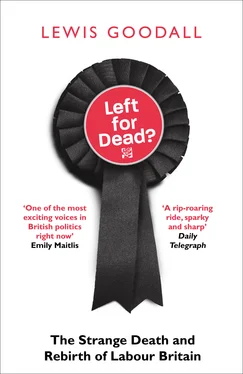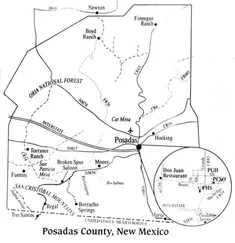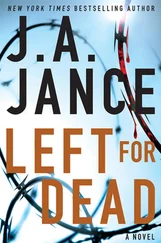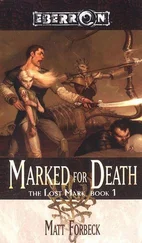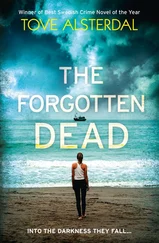Mark Corrigan, Peep Show , 2008
What we want to know is what kind of society this government is trying to create.
I’m a New Labour kid. That’s not to say anything about my politics especially; rather it’s a matter of my pedigree. The earliest political memory I have is John Major giving way to Tony Blair. I was seven years old, nearly eight, and had some dim conception of this grey man in big glasses being in charge. Mum had previously explained to me that, contrary to my assumptions, the Queen was not in fact the leader of the country. This struck me as being very peculiar: the Queen, after all, had a crown. No, Mum insisted, it wasn’t anything to do with the crown, power was actually exercised by this drab man in a suit rather than the old lady in the jewels. Put right, I forgot about it and focused on something else, like Lego.
But I remember the morning of the 1997 election, watching it on TV. This younger man driving up in front of a black door. Mum explained to me there had been a vote and a change. I was captivated by the idea. That the leader could change just because people willed it. *I asked Mum – worriedly – if she might change if there were a vote and be replaced. No, she laughed, that wouldn’t happen. I was relieved.
But I kept on watching. And watching and watching and watching. I can’t tell you why I’m interested in politics. I just am. In the same way that some people can’t explain why they’re interested in football, or cooking or butterflies, I am just fascinated by politics. I am addicted. There hasn’t been a day since I was about ten or eleven years old when I haven’t thought about it to some degree or other. The drama of it, the importance and scope of it, the power and vitality of it. I can’t understand why anyone wouldn’t be.
My political ‘education’, if you can call it that, started quite early, thanks to one man – my grandad. I used to spend every Easter, summer and half-term with my grandparents on the North Wales coast. Grandad, having been made redundant when the Birmingham mint closed, opened a small souvenir shop in the coastal town of Towyn, near Rhyl. Every day I’d work behind the counter, and there, or in his van, on our way to top up his stock, I would pepper him with questions: ‘What does the prime minister do?’ ‘What were the names of the old prime ministers?’ ‘What were they famous for?’ ‘Do you remember them?’ ‘Which one did you like best?’ ‘Did you like Harold Wilson?’ ‘Why didn’t you like Margaret Thatcher?’ ‘How often is an election?’ ‘Grandad, I’ve read about the miners’ strike – what was that?’ ‘How big is this Chief Whip I’ve read about?’ I must have done his head in but he never once expressed the slightest irritation or impatience, he just chuckled, took another puff on a cigarette and talked to me not like a child but an equal. I gorged on his knowledge and wisdom and words. It was the foundation of everything I was to learn later.
But, in a way, the knowledge he gave me and that I imbibed from book after book was secondary. Because I think that from quite a young age I was aware of how important politics was, not because I read about it in some theoretical or abstract way but because I could see, even as a child, the import and impact of political change around me. Not just with my dad’s work, in Longbridge as I’ve described, but on each and every aspect of my little life.
When I was small we lived in a pretty dilapidated council house. The worst part was that it had no heating upstairs. I remember as a little four- or five-year-old begging Mum to let me sleep with her when my dad was on his night shifts because it was just so cold upstairs. Mum didn’t mind, †but in the end she bought me an electric blanket and we left it on all night. God only knows how we didn’t set the house ablaze. Especially when you consider she occasionally gave me a hot-water bottle to go with it. Even with both, I rarely wanted to get up in the mornings – just now and again, in winter, you could see your breath inside.
I didn’t know any different: it was home, I was happy. I had two kind, loving parents, a mum and dad who although so young did everything they could to give me the best beginning that they could. But, looking back, the fact that a little boy and then a baby sister were allowed to live in a state-owned house without proper heating in the early to mid-1990s was appalling.
At some point, near the dawn of the new millennium, those houses on Willets Road in Northfield were declared unfit for habitation. They were rightly pulled down and we moved to a better house on a rougher estate but which nonetheless my mum and dad eventually bought under the right to buy scheme. One day, not long after we moved there, on my way home from school, I was beaten up by some older kids. They kept accusing me of ‘cussing’ their mum. I replied meekly, tearily, that I’d never even met their mum. It didn’t stop the next round of punches; I learned then that there’s nothing quite like the sound of the impact of fist on jawbone. Mind you, I was so fat at the time they probably rightly intuited that if they’d gone for anything else their hands might have disappeared under endless rolls of flesh. I was so ashamed that I didn’t admit it for days. When the indigo bruises began to appear, I told Mum I’d walked into a door at school. When she asked why they appeared to be on every side of my face I replied that it was, in fact, a revolving door. Unsurprisingly she wasn’t fooled. For a while I didn’t walk home from school any more. Mum worried we’d moved into the worst neighbourhood in south Birmingham; my dad, by comparison, who had been brought up in proper poverty as the youngest of a big Irish family in Middlesbrough, seemed to think it was, if anything, moderately swish. The trouble peaked one night when the garages around the back of our house were set on fire. I watched it from my bedroom, wondering to myself why anyone would want to do it. The truth is, though they might not have had much more than me materially, they lacked my real blessing: two loving parents, who both wanted me to achieve. In the end, the council put in a new neighbourhood team to sort out the estate. Over time, things got better. After a few years, the problems more or less disappeared.
I attended a lovely school, Turves Green Primary, just down the road. A year or two before I left, me and a few of my friends who were quite bright got an extra teacher, Mrs Clinton, who worked just with us on advanced English and maths lessons. It really helped bring us along and stretched us in ways we might not otherwise have been. Embarrassingly, I remember being thrilled she shared her surname with the then president and asked if there was any chance she might be related and could arrange a tour of the White House. I was more than a bit disappointed by the reply. Around the same time, we started doing something called ‘Literacy and Numeracy hour’. I remember my teacher Mrs Hicking, doubtless aware of this little weird boy already showing an odd, precocious interest in politics, telling me it was a new idea from the new government. I was puzzled but intrigued that teachers, the summit of all power, were being instructed from elsewhere. It was the first of many changes over the next few years.
Then the school was refurbished. I was disappointed to be leaving just as everything was unveiled. I didn’t get into King Edward’s Grammar School a few miles away and so accompanied my (male) friends and travelled a few hundred yards up the road to the local comprehensive, Turves Green Boys’ Technology College. It was a school that had its problems and that did its best with lots of kids who didn’t have that much in life. Many of the boys there didn’t think learning would help them and didn’t see much point in the subjects or knowledge the teachers, with varying degrees of enthusiasm, tried to impart. In my early days, you didn’t get the sense some of the teachers were doing much to help matters. I remember one maths lesson, the teacher, who usually taught PE, gave up trying to keep control of an especially riotous afternoon session. He called for the deputy head, the austere, taciturn Mr Williams. He remonstrated with us: ‘You’re some of our brightest lads, if you actually apply yourselves, you can get Ds and Cs … maybe more, if you’re lucky.’ Educational rallying call, it was not. The lack of ambition, on both sides of the teacher’s desk, was occasionally profound.
Читать дальше
